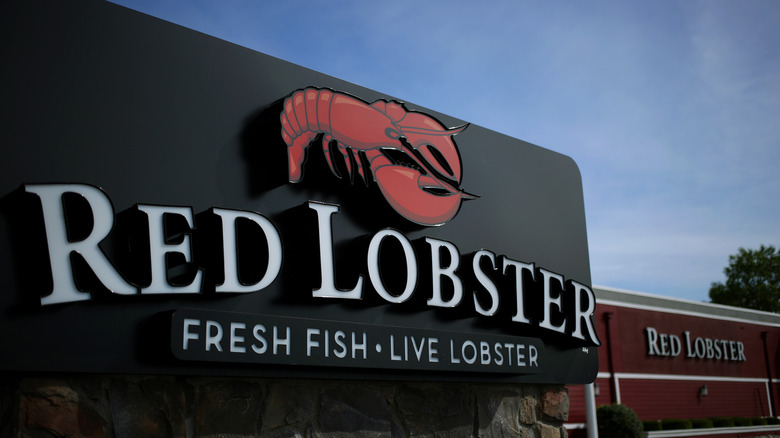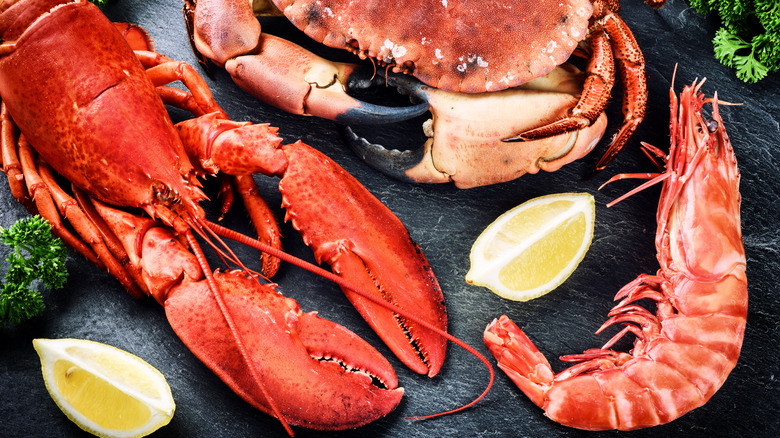Why This Lawsuit Has Red Lobster Customers In An Uproar
Advocates for sustainable fishing practices have had a lot on their plate in recent months. It wasn't that long ago that Toxic Free USA sued Aldi over the claim that the grocery chain's fish came from sustainable sources (via CSRWire). This news sent shockwaves through the food industry, and now Red Lobster is facing similar allegations. According to Food & Wine, a class action lawsuit filed in California against the seafood giant alleges that their claim of sustainable sourcing (along with their tagline of "seafood with standards") deceives consumers, as their fishing practices may do more harm than good.
The allegations center around how the restaurant's lobster fishing practices endanger North American right whales, while their shrimp is said to come from farms that do not maintain high environmental standards, while adhering to inhumane practices. The lawsuit (which can be read in full at ClassAction.org) aims to stop the chain from claiming it engages with environmentally-friendly fishing practices, while also highlighting how Red Lobster tries to sell seafood at higher markups by using the sustainable label. The plaintiff, a single individual, believes that because of the latter part they are entitled to receive monetary compensation for the alleged deception.
Shrimp are people too
The lawsuit brings up how the restaurant chain allegedly imports their shrimp from farms across Indonesia, Vietnam, India, and China, areas which see high levels of overcrowding, disease, and undue suffering in their aquatic farms in order to increase production. The same lawsuit also challenges the lobster fishing practices that occur in the waters off Maine. The particular group that sells Red Lobster their namesake dish has allegedly "had the potential to harm the North Atlantic right whale at more than three times the sustainable rate," according to the lawsuit as seen on ClassAction.org.
Red Lobster told Food & Wine they couldn't comment on pending litigation but did make the following statement: "What we can say is that we stand behind our Seafood with Standards commitments as well as our support for scientific research and continuous improvement efforts to ensure there's seafood to enjoy, now and for generations." If you keep a close eye on where your seafood comes from, you'll want to follow this case as it develops.

